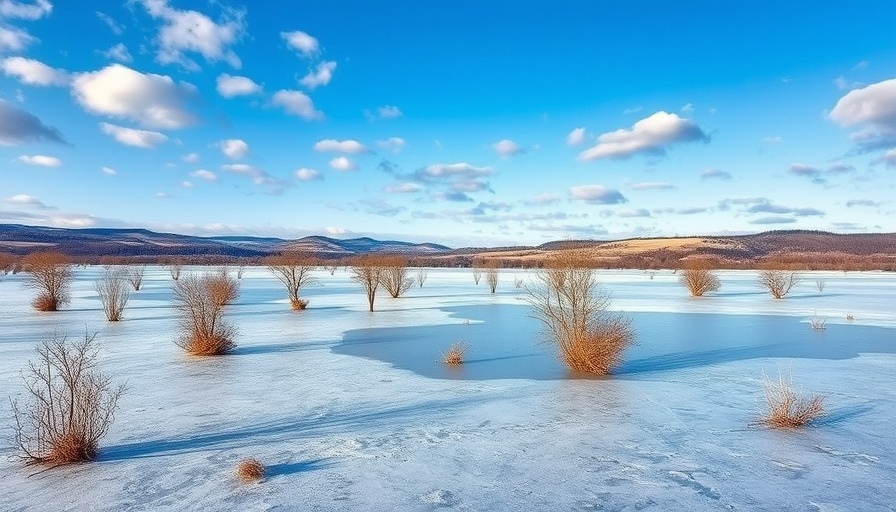
Beavers: Nature’s Ingenious Engineers
In a striking turn of events, a colony of eight beavers in the Czech Republic has transformed a former military training area into a flourishing wetland, effectively engineering a long-delayed environmental project. Spanning south of Prague, this strategic act of nature has not only saved the state approximately $1.2 million but has emerged as a promising sanctuary for endangered species like the stone crayfish.
How Beavers Work to Create Wetlands
These semi-aquatic mammals are often hailed as “ecosystem engineers” due to their remarkable ability to build dams using mud, rocks, and trees. Their instinctual construction creates beaver ponds that significantly enhance biodiversity by providing habitat for numerous species, including fish, insects, and amphibians. As noted by Bohumil Fišer of the Czech Nature Conservation Agency, the beavers have created an area that is roughly twice the size of what was originally planned, resulting in expansive pools and canals that enrich the local ecosystem.
Savings and Benefits Amid Bureaucratic Delays
The initial proposal for constructing a dam at this site was developed back in 2018 but faced significant bureaucratic hurdles concerning land permissions and negotiations, delaying the essential conservation project. It’s believed that the beavers recognized the need for intervention and, in a matter of days, accomplished what humans had struggled to achieve over years. As Jaroslav Obermajer, head of the Central Bohemian office at the Czech Nature and Landscape Protection Agency, quipped: "Beavers always know best." This statement underlines the effectiveness of beavers as natural engineers compared to human-led projects.
Environmental Impact: Beyond Just Dams
The work of the beavers goes beyond simply building dams; these structures promote better water quality and create a habitat that can help mitigate floods and wildfires while acting as carbon sinks. With increasing concerns about climate change, the ability of beavers to manage natural waterways is hailed as a crucial benefit for local ecology. Environmentalists have noted that the beaver-created ponds enhance the conditions for wetland species, benefiting the biodiversity of the region significantly.
Challenges and Perspectives
While the beavers’ incredible work has evoked cheers from environmentalists, they are not without critique. Farmers near the site often voice concerns over tree felling by beavers, a complaint that is countered by the absence of agricultural land in the immediate vicinity of the project. "We don’t expect any conflict with the beaver in the next 10 years," Fišer expressed, highlighting an optimistic outlook for future coexistence.
The Future of the Czech Wetlands
The beavers continue to expand their dam-building, reinforcing their crucial role in ecosystem management. As more people recognize the synergistic relationship between beavers and the restoration of natural habitats, it may inspire similar projects across Europe and beyond. Their natural engineering could serve as a beacon of hope for efficient and sustainable land management practices, ultimately leading to more success stories in ecological preservation.
This incident reminds us that nature often has the solutions for many human-made problems and encourages a reevaluation of how we coexist with wildlife. As the beavers do their part in revitalizing the wetlands, they stand as a testament to the importance of biodiversity and natural processes.
 Add Row
Add Row  Add
Add 



 Add Row
Add Row  Add
Add 

Write A Comment